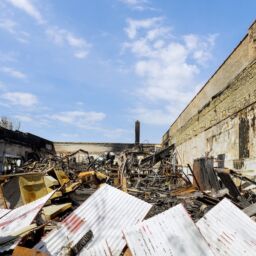A joint effort by state, federal and American Red Cross workers helped to resolve eligibility questions for hundreds of wildfire survivors on Maui over the weekend, ensuring they can continue sheltering in hotels and similar lodging.
Displaced wildfire survivors will be able to continue to register for both Red Cross and FEMA assistance Monday and Tuesday until all those in the non-congregate sheltering program have had their cases reviewed and appropriately resolved, according to an announcement from the governor’s office.
“Hawai‘i remains committed to ensuring that every person displaced from home by this disaster will have a place to stay,” said Governor Josh Green, M.D.
“We realize that the people of Maui have been traumatized by the wildfires, that they may not speak English, that they may have questions about trusting the government — so we’re offering our full support to help keep eligible kama‘āina in the non-congregate sheltering program,” the governor said. “This lodging is a vital part of the safety net, and we’re pleased the Red Cross has made the extra effort to help all of those in our community who are eligible but had difficulties with the process.”
More than 2,500 families had established full eligibility for non-congregate sheltering as of Monday morning, Oct. 2, up from about 2,200 on Friday, Sept. 29, the Red Cross reported.
“It’s important we continue doing all we can to offer stability to those displaced by the disaster,” said Maui County Mayor Richard Bissen. “I’m grateful for the efforts of the American Red Cross and FEMA to help support our community’s needs. I’m especially thankful that many residents temporarily housed in hotels have been able to get through the registration process over the weekend to secure continued sheltering.”
Nearly 150 more didn’t meet the full eligibility rules, but will continue to receive shelter and services under a parallel program because they had special circumstances, such as:
-Their immigration or citizenship status did not meet federal requirements
-They had citizenship in the Federated States of Micronesia, Republic of the Marshall Islands or other states covered by the Compacts of Free Association with the United States
-They were unhoused at the time of the fires and had a disability, minor children, or other circumstances that would make it difficult for them to successfully transition to a group shelter.
“Citizenship and immigration status have nothing to do with whether you qualify, and we don’t share that information with the government,” said Brad Kieserman, vice president for disaster operations and logistics with the Red Cross. “Our focus today is on making sure that everyone who is in this shelter program because they were displaced from their homes by the fire stays in this program.”
The Red Cross operates the non-congregate sheltering program under a contract with the State of Hawai‘i, offering shelter in hotels or similar lodging – along with meals and support services, such as health care – to more than 7,000 people from about 3,000 households. Organizers said it offered more privacy and healthier conditions than the group shelters established immediately after the fires, and non-congregate sheltering will be available until longer-term “bridge housing” with kitchens and similar amenities are available.
To be eligible, people must have:
-Been residents of the area impacted by the fire before the disaster
-Been an owner/renter or a household member of an owner/renter in the affected area
-Resided in a home that was destroyed or rendered uninhabitable by the disaster.
In the weeks shortly after the fire, the non-congregate sheltering program offered a “safe harbor” period when full eligibility was not required to remain in lodging. Red Cross reports that personnel have been reaching out for weeks to households that had not established full eligibility, using phone calls, text messages and letters delivered to the rooms where they were staying. The “safe harbor” period ended Friday, and many households did not take action to address eligibility until their room keys stopped working.
The Red Cross and State of Hawai‘i will continue to work with the remaining families to resolve questions that remain on their eligibility, according to the announcement.
Source: MauiNow October 2, 2023
















